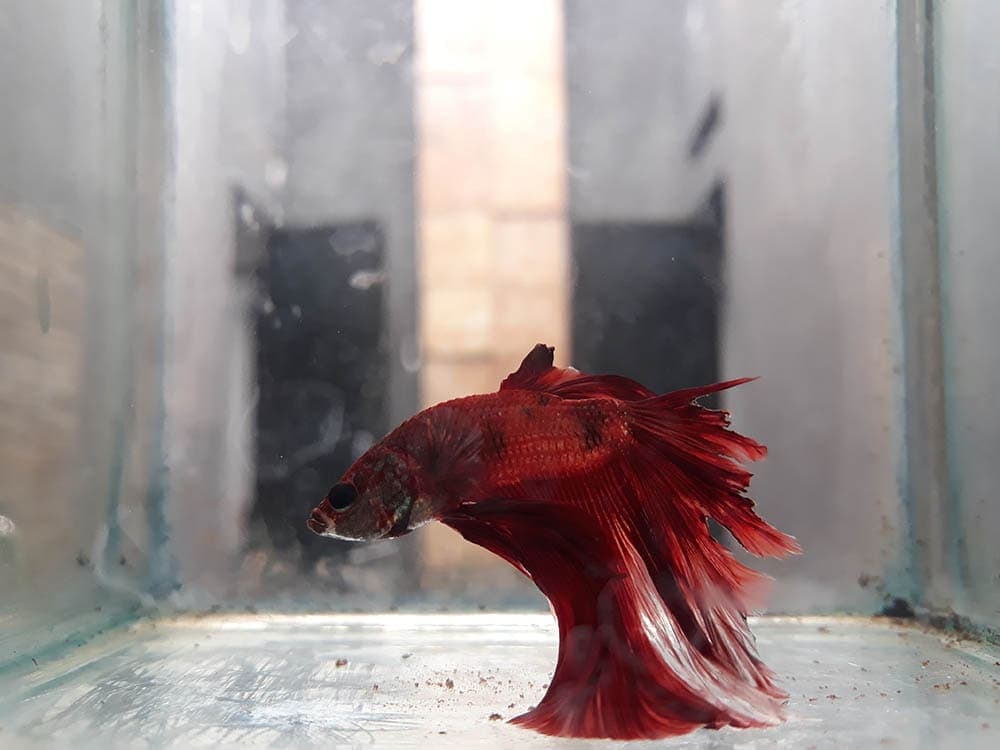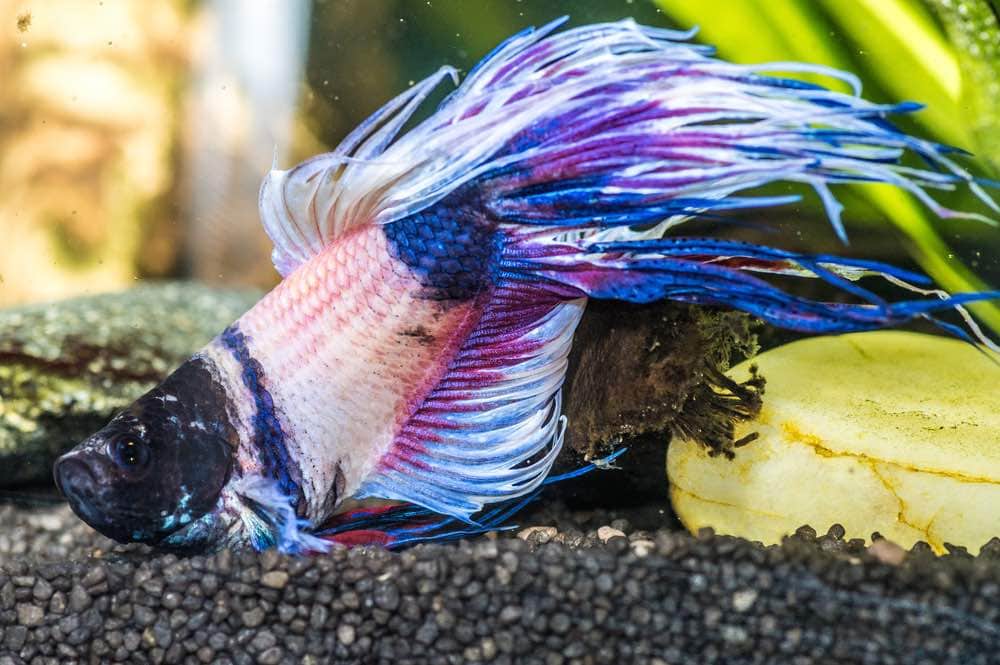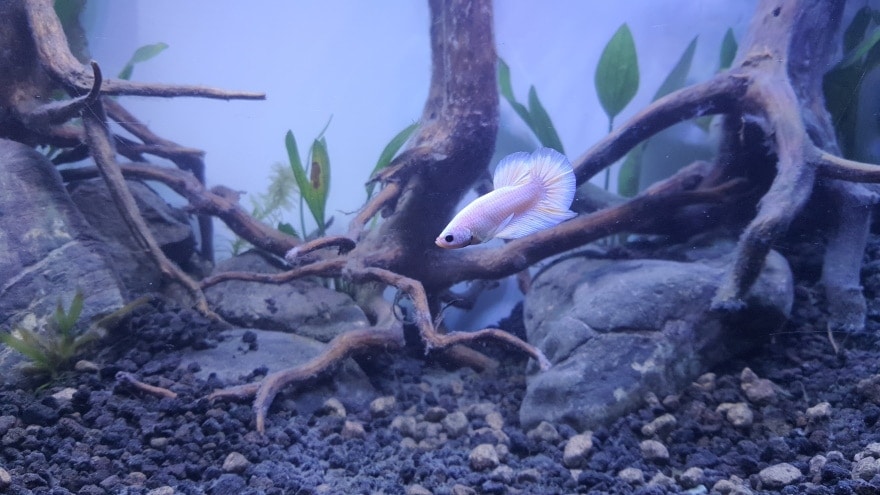Betta Fish First Aid Kit: Aquatic Healthcare Necessities

Updated on

Betta fish are beautiful and can brighten up any fish tank. However, bettas are also prone to some common health issues. If you have a betta in your aquarium, you’ll want to have a first aid kit handy.
Often with fish, the timing for medical treatment is critical. You may not be able to get your betta to a veterinarian quickly if it becomes ill. Furthermore, fish are not easy to transport safely.
By having everything on hand, you can effectively treat many of your betta’s illnesses at home. Keep reading to learn what you need to stock your betta first aid kit.
What Can You Treat with a Betta First Aid Kit?
You might be thinking that you’re not a veterinarian, how can you possibly help your fish if it becomes ill? The great news is that many issues with betta fish health can be treated by any fish owner with the proper equipment.
- Ich – This is a parasitic infection that causes white spots to appear on your fish’s body.
- Columnaris – This bacterial infection is more commonly known as fin rot. It is usually caused by dirty water.
- Velvet – This is another parasitic infection that makes your fish appear dusty and brownish in color.
- Dropsy – This is usually a secondary effect of kidney problems in fish. The body balloons and the scales appear to stick out. It is often fatal but can be treated if the causes are able to be addressed quickly.
- Swim-Bladder Disorder – Typically caused by water quality issues, swim bladder disorders impact your fish’s ability to maintain buoyancy.

What to Include in Your First Aid Kit
Many of the materials you need to treat some common betta health problems are easy to use. You will be able to find most, if not all, of these items at your local pet store or fish specialty shop.
Make sure you are reading instructions carefully on all of these items so that you are able to effectively treat your fish without causing further harm.
- Antibacterial Medication – Because there are different types of bacterial infections your fish can contract, you’ll need two different antibacterial medications. Typically, you’ll find two types of Maracyn (type 1 and 2). This medication can be used to treat fin rot.
- Antifungal Solution – An antifungal treatment is also a good idea to have on hand. Fungal infections can spread quickly and can sometimes be stopped with aquarium salts. If these aren’t effective, medications such as PimaFix can help.
- API Stress Coat – This is essential for calming your betta if they are stressed and for promoting the healing of small cuts or scrapes. It is a water conditioner that contains aloe vera.
- Aquarium Salt – This can be used to treat fin rot. It may take several days and applications to the water to work. Be careful to follow the instructions on the package carefully as bettas do not do well in over-salted water.
- Copper-Based Medication – Parasitic infections may require a copper-based medication if other treatments don’t work. You cannot add a copper-based medicine to any tank that has invertebrates, such as snails. The copper will kill them. Copper can also harm live plants in your tank. However, if your betta has a stubborn parasitic infection, copper medicines can help heal things like ich and velvet.
- Epsom Salt – This acts as a muscle relaxer if your betta needs help relieving constipation. Epsom salt can also help your betta recover from dropsy and swim bladder problems.
- Indian Almond Leaves – Although these aren’t necessary, Indian almond leaves can help keep your betta healthy. Think of them as a preventative medication. Adding a few to your tank will help your betta heal minor scrapes more quickly as well.
- Quarantine Tank – The first thing you’ll want to do if you notice your betta looking sickly is to remove it from your tank if you have other fish. You’ll need a quarantine tank with a filter, heater, light, and other materials you have in your betta’s normal environment. Having a separate tank allows you to treat your sick fish and prevents the spread of disease to your other fish.
- Water Conditioner – A good water conditioner is a must for any fish tank owner. It helps ensure your water is properly dechlorinated before you add your fish. You’ll need to have it on hand if you need to move your betta to a quarantine tank.
- Water Test Kit – Many betta health problems are the result of poor water quality. You’ll need a water test kit to help you identify potential water quality issues such as improper pH levels, nitrate levels, or ammonia levels.

Medications You Should Avoid
One previously popular medication that you should now avoid exposing your betta fish to is Melafix. Bettafix is another similar treatment. Both of these medications contain oils that can make it difficult for your betta fish to breathe and they should be avoided.
Conclusion
Bettas can be tricky fish to own. They are sensitive and prone to many infections if their water is not kept at the right temperature, pH, and cleanliness level. Luckily, many things that can go wrong with your betta can be fixed with a few simple tools.
You should always make sure you are following the instructions on any medications and treatments closely so that they are effective and don’t cause more harm to your fish. Now that you know what you need, you should go put your betta fish first aid kit together.
Featured Image Credit: Wirestock Creators, Shutterstock











